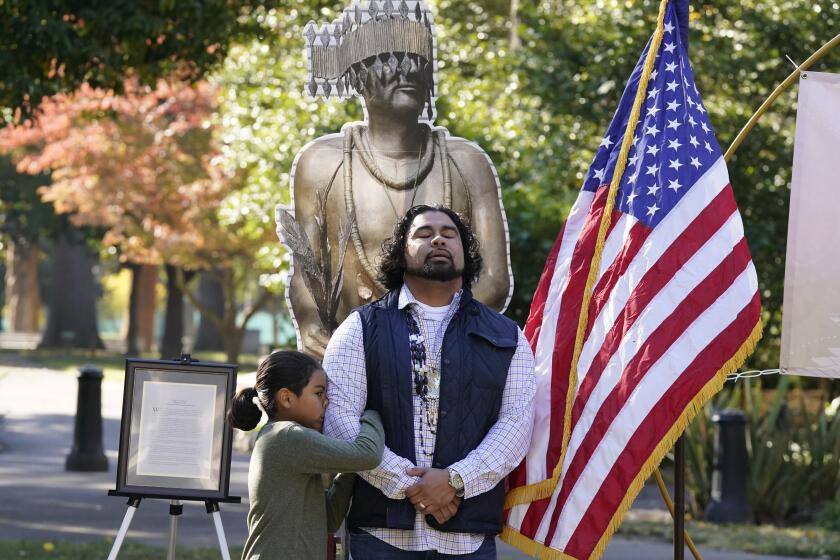Court Upholds RSI Disability Ruling
McClatchy Co. did not violate the Americans with Disabilities Act when it fired a Fresno Bee newspaper reporter with repetitive stress injuries, a federal appeals court ruled Wednesday.
Because Jacalyn Thornton could still perform many “major life activities,” two members of the three-judge panel on the U.S. 9th Circuit Court of Appeals upheld a lower court’s summary decision that she did not meet the ADA definition of disabled.
Disability law experts denounced the decision and said that if it is upheld it could substantially weaken the federal law’s ability to protect people with repetitive stress injuries. An estimated 2 million American workers suffer from job-related injuries of the nerves and muscles.
“I really think they are wimping out,” said Eve Hill, executive director of the Western Center for Disability Rights and a visiting professor at the Loyola Law School in Los Angeles. “It’s sort of a method of docket control. It’s a summary judgment decision that keeps out a whole class rather than dealing with the case at hand.”
But Margaret Hart Edwards, a lawyer with the San Francisco office of Littler Mendelson, a law firm that represents employers, said the decision wasn’t surprising.
“There is a pretty formidable body of case law under the ADA taking a relatively conservative view of the meaning of ‘substantially limiting a major life activity,’ ” Hart Edwards said. “It sounds like what the court did is follow that body of case law.”
Thornton’s injury was so severe that a doctor hired by the newspaper limited her typing to no longer than 30 minutes at a time and a maximum of an hour each day. The doctor also limited her hand writing to no more than five minutes at a time or 60 minutes in a day.
The newspaper considered accommodating her with voice recognition software or a different job before deciding her condition made her unable to perform her job. She was fired in 1997.
“This is really not a minor injury,” said Walter Whelan, Thornton’s Fresno lawyer. “This is a significant one, admittedly so, by [the newspaper’s] own people.”
Joseph Beachboard, a lawyer and publisher of the California Employment Law Letter, said the case raises the question of how critical computers and writing are to modern life.
“The dissenting opinion says being able to write in today’s society is like being able to hunt in olden days,” he said. “It is a substantial life activity. If you can’t use a computer, you can’t function in today’s society. It must be a disability that’s protected.”
The U.S. Supreme Court has not ruled in an employment disability case involving a repetitive stress injury, including carpal tunnel syndrome, lawyers said.
Thornton’s lawsuit against McClatchy also challenged her firing under California’s disability law, and the appeals court sent that part of the case back to the lower court. Because the definition of disability under California law is much more lenient--an impairment that merely (not substantially) limits a major life activity--experts said it is likely she will prevail.
“This may end up being a hollow victory for the employer,” Beachboard said. “The condition would almost certainly be considered protected under state law.”
Kathryn Morrison, a San Francisco attorney with Seyfarth Shaw who represented McClatchy, said the amendment expanding the definition of disability in California went into effect this year and should not be used retroactively. Even if it is applied to the case, she said, “we think ultimately there will be a ruling that McClatchy acted in compliance” with California law.
*
Bloomberg News was used in compiling this report.
More to Read
Start your day right
Sign up for Essential California for news, features and recommendations from the L.A. Times and beyond in your inbox six days a week.
You may occasionally receive promotional content from the Los Angeles Times.







